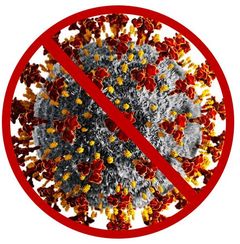
Long COVID Overview
Tina Q. Tan, MD and Rodney Rohde, PhD, MS, SM(ASCP)CM, provide an overview of long COVID and describe the different symptoms patients may experience.
Episodes in this series

Click through this short slide show for highlights of current Centers for Disease Control and Prevention recommendations for vaccination against COVID-19 that are discussed in the video. A text summary of the video appears below that.
This is a synopsis/summary of a panel discussion involving Tina Q. Tan, MD, and Rodney Rohde, PhD, MS, SM(ASCP)CM.
Tina Q. Tan, MD, discusses the latest insights into COVID-19 and vaccinations in children. She notes that initially, people felt children only got mild COVID infections, but now we know children can get severely ill and also develop long-term symptoms known as "long COVID." Results from studies show a 30 to 40 times higher risk of long COVID in unvaccinated versus vaccinated individuals.
Long COVID symptoms are wide-ranging and include fatigue/tiredness, shortness of breath, brain fog/difficulty concentrating, headaches, diarrhea, menstrual changes, etc. These can persist for over 4 weeks after the initial infection.
Rodney Rohde, PhD, MS, SM(ASCP)CM, discusses theories on why some people develop long COVID. Possible reasons are autoimmune responses where antibodies attack the person's own tissues, causing multi-system symptoms. Also, direct viral damage to organs and tissues which then cause ongoing problems.
In summary, children are at risk for severe COVID infections and long-term complications like long COVID. Getting vaccinated significantly lowers the risks. Ongoing research is still determining exactly why some people develop persistent symptoms while others recover fully.
Video synopsis is AI-generated and reviewed by Patient Care editorial staff.
Newsletter
Enhance your clinical practice with the Patient Care newsletter, offering the latest evidence-based guidelines, diagnostic insights, and treatment strategies for primary care physicians.































































































































